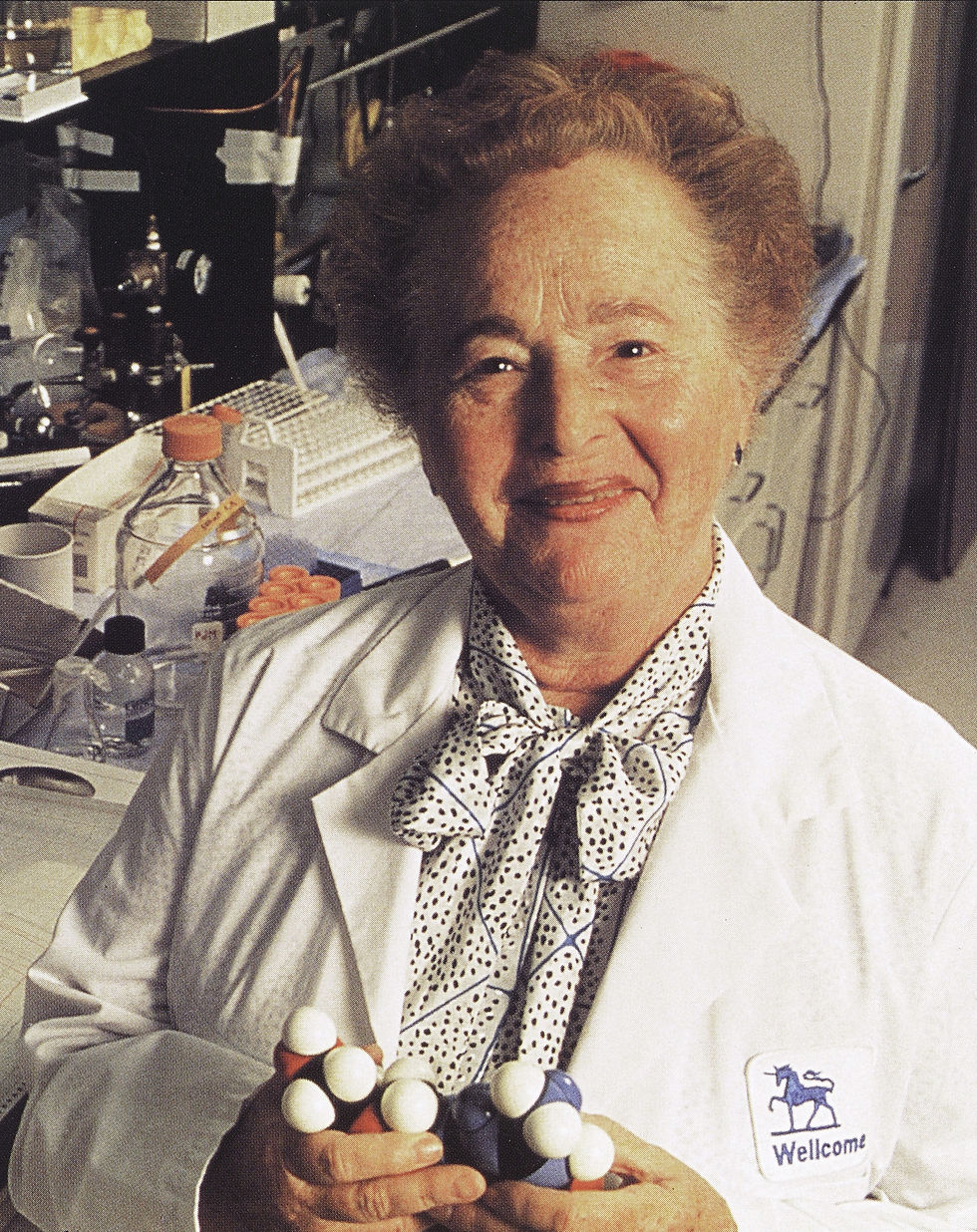Remembering a Pioneer of Discovery
- Sara Thompson
- Jan 19, 2022
- 3 min read
Updated: Jan 19, 2022

By Sara Thompson
Special to the Enterprise
Gertrude B. Elion was born on January 23, 1918, in New York City. She attended a public school near her home with her brother and enjoyed all her courses equally. As she neared her graduation she was thinking of her future and what major to pursue in furthering her education. She attributes her decision to a moment in her mid-teens. She helped care for her grandfather while his health was failing and was with him when he passed away from stomach cancer. Her time caring for him inspired her to pursue science, with a goal to find a cure.
She attended Hunter College after graduating high school at 15 years old. Because of her high grades she was able to attend college for free. In 1937, she graduated with a degree in chemistry. Because she was a woman, she could not get a job as a researcher. She worked as a high school teacher and secretary to earn some money, while working an unpaid position in a chemistry lab for the experience. She was able to save some money and attend New York University, pursuing a graduate degree. Even though she was the only woman in her graduate class and struggled through some hardships because of it, she received her Master of Science degree in chemistry in 1941.
During World War II, jobs were scarce so Elion worked where she could, sometimes only having a job for a few weeks or months. She eventually found a research position in a laboratory assisting Dr. George Hitchings. He appreciated her hunger for knowledge and gave her increasing responsibilities and included her more in his research. Together they developed a new method of medical drug testing. Instead of doing trial and error methods on patients, they used biochemical research on cell samples to see how they reacted to different drugs. They would then use their knowledge of metabolism and chemistry to adapt and change the drugs to be more effective. These methods were successful in creating drugs that would destroy or inhibit pathogens without harming the heathy cells. These breakthroughs led to the first treatments of leukemia and other cancers, bacterial infections, malaria, gout, organ transplants, and more.
All of the research Dr. Hitchings and Elion did led to further research in the medical fields. In 1988, Elion received the Nobel Prize in Physiology or Medicine, along with her colleagues Dr. Hitchings and Sir James Black, for the important new principles of drug treatment. At the time Elion was only the fifth female Nobel laureate in Medicine, and the ninth in science overall. She continued to research and develop drug treatments until her death in February 1999. Her contributions helped in developing modern research and development in drug treatments and for the first medicines in several ailments including cancers.
Explorit's coming events:
• Explorit open for public hours Fridays from 1-4pm, and Saturdays and Sundays from 10am-2pm. Admission is $5 per person. Explorit Members, ASTC, and those ages 2 and under free.
• A Membership to Explorit not only supports us but grants the recipient free visits to Explorit’s regular public hours, discounts on events, summer camps and workshops, and gives you ASTC benefits to visit other museums throughout the world. To purchase or for more information visit https://www.explorit.org/membership or call Explorit at 530-756-0191.
• Like many small businesses the closures have had a significant impact on our income and sustainability. Now is a great time to donate and help Explorit continue to educate and inspire the scientists of tomorrow: https://www.explorit.org/donate.

Comments